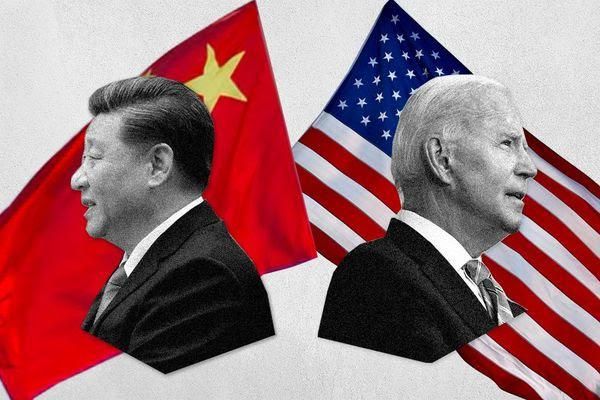Biden and Xi to talk ... Taiwan
US President Joe Biden and China's Xi Jinping are scheduled to speak via video call on Thursday for the fifth time. And the timing is, to put it mildly, not good. The two will likely talk about whether Biden will lift some of Trump's tariffs against China, or if Xi will dust off his passport to attend the November G20 summit in Indonesia, and the war in Ukraine. But the elephant in the room is, once again, Taiwan. US House Speaker Nancy Pelosi's still-unconfirmed visit to the self-governing island has caused shockwaves in Beijing, which threatens “consequences” for America if Pelosi sets foot in Taipei. The US military — which according to the president opposes the trip — fears China could even try to shoot down her plane. Biden is expected to tell Xi that he doesn't support Pelosi's plans, but also can't force her to cancel, which will do little to assuage the Chinese leader. Pelosi, second in line for the presidency, would be the first US speaker to visit Taiwan since 1997, a year after the last big standoff over Taiwan ended with China backing down after the US flexed its military muscle.
Ousted PM wins in Pakistani court
Pakistan's Supreme Court overturned on Wednesday a recent vote by the Punjab assembly to pick a chief minister from the ruling party over a candidate backed by former Prime Minister Imran Khan. The ruling is a big win for Khan — removed in a no-confidence vote in April — because Punjab is Pakistan's most populous province, as well as a bellwether for national politics right when the ousted former PM is plotting his comeback after leading months-long nationwide protests calling for a snap election. Also, the verdict might indicate that part of the powerful army — which directly or indirectly always calls the shots in Pakistani politics — might have buyer's remorse with current PM Shehbaz Sharif, whom the generals allowed to take over without intervening. Pakistan can’t catch a break: the last thing it needs now is more political turmoil when it's teetering on the brink of default while also suffering an energy crunch and sky-high inflation.
